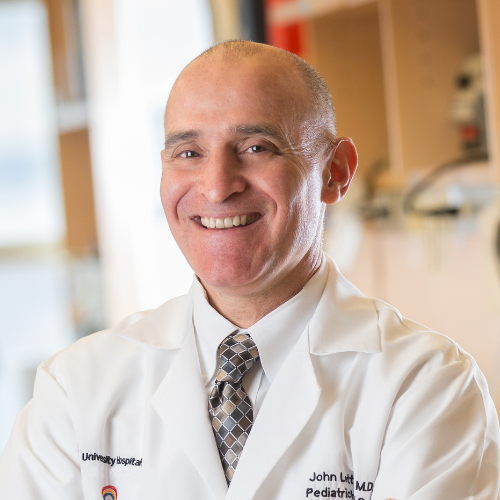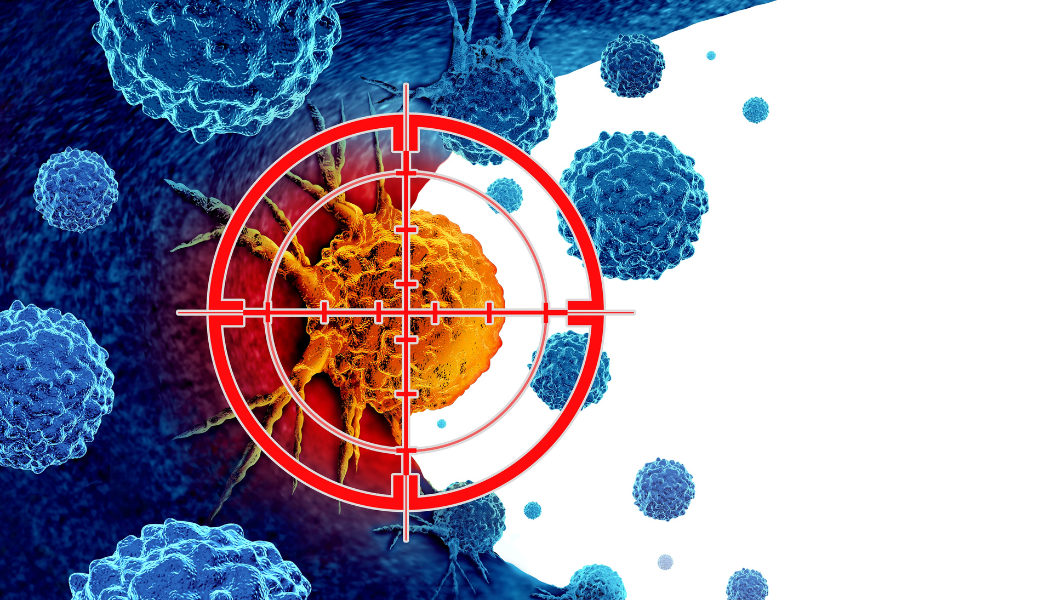Credentials
Case Western Reserve University
Cleveland, Ohio
Professor of Radiology,
Biomedical Engineering and Pathology,
Case Western Reserve University
Research Projects
Most women in the earlier stages of their breast cancer choose surgery that minimizes the amount of breast tissue removed. Removal of all the cancer tissue is vital to improving outcomes for patients. The surgical success is determined by the pathology report completed after patients have returned home. Unfortunately, in 20-60% of the cases, the results indicate ‘positive margins’ of cancer cells, unseen by surgeons, remain next to healthy cells. Patients need additional surgery and many times adjuvant treatment. Improving this burden for breast cancer and other types of cancer patients is an unmet clinical need.
Diagnostics and therapy together in one agent is called ‘theranostics’, and with NFCR’s sustained support, this is the approach taken by Dr. James Basilion to address this significant need of cancer patients.
He developed a powerful theranostic molecule or probe that binds to the protein on cancer cells called prostate specific membrane antigen (PSMA). Prostate cancer, triple negative breast cancer, and many other cancers abundantly express PMSA on the tumor cells.
Applied during surgery to the tumor site, the theranostic PMSA probe fluoresces with applied light allowing surgeons to better visualize remaining cancer cells – called Fluorescent Image Guided surgery (FIGS). Applying light to PMSA also triggers it to kill cancer cells – a process called photodynamic therapy (PDT).
To improve the tumor killing power of the theranostic PMSA probe, NFCR is supporting the collaboration of Dr. Basilion and immune system expert, Dr. John Letterio. The two teams are monitoring how the dose and time of light may also stimulate or suppress an immune response in lab models of triple negative breast cancer. Immune system targeted agents will be given to suppress or stimulate the immune system as needed to achieve the best outcome on killing the primary tumor and on the deadly spread of the cancer.
IMPACT
Effectively treating cancer requires a multipronged approach. The immunological effects of the PMSA theranostic approach is vital to long-term survival and can potentially prevent metastatic disease. PSMA is also found in new blood vessels of all solid tumors, allowing Dr. Basilion’s theranostic approach to potentially enhance outcomes for patients with breast, prostate, colorectal, pancreas, brain and liver tumors.
Years of NFCR support to Dr. Basilion’s laboratory efforts have led to promising experimental imaging technology now being commercialized through the AIM-HI Translational Research Initiative. To learn more, click here.
Background
James P. Basilion, Ph.D., studied biochemistry at the University of Pennsylvania in 1984 and attended graduate school at the University of Texas Health Science Center. He then completed his postdoctoral fellowship at the National Institutes of Health and, during this time, he began a series of studies with investigators at the Center for Molecular Imaging Research at Massachusetts General Hospital.
In 1996, Dr. Basilion worked at a small genomics and anti-cancer biotech company and, in 1999, he joined the faculty of Harvard Medical School and Massachusetts General Hospital-Center for Molecular Imaging Research. He was later recruited at the Case Western Reserve University Schools of Medicine and Engineering and is currently a professor in both the Departments of Radiology and Biomedical Engineering.
Dr. Basilion served as Director of the NFCR Center for Molecular Imaging from 2005 to 2017. Additionally, he serves as an external advisory board member for the Pacific Ovarian Cancer Research Consortium and Fred Hutchinson Cancer Center, and was a standing member on the MEDI Study Section for the National Institutes of Health. Dr. Basilion has held several offices in the Society for Molecular Imaging (SMI), and was instrumental in the merger to form the World Molecular Imaging Society (WMIS), where he served as treasurer.
Dr. Basilion provides reviews for several academic journals and holds editorial board positions for molecular imaging-centric journals. He has also founded Akrotome Imaging, Inc., a company devoted to the translation of molecular imaging technologies.

Our approach emphasizes a collaborative, team environment to accelerate new breakthroughs.


















